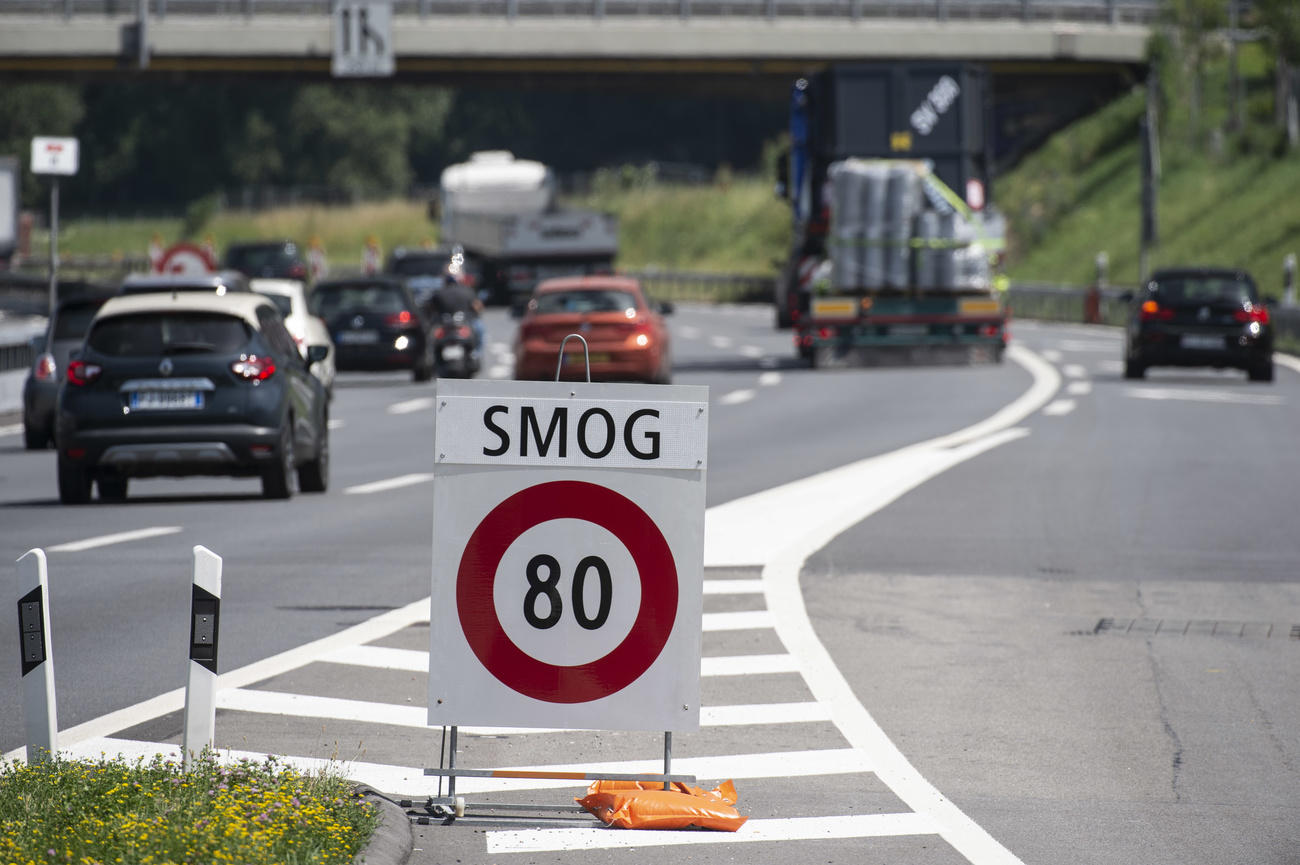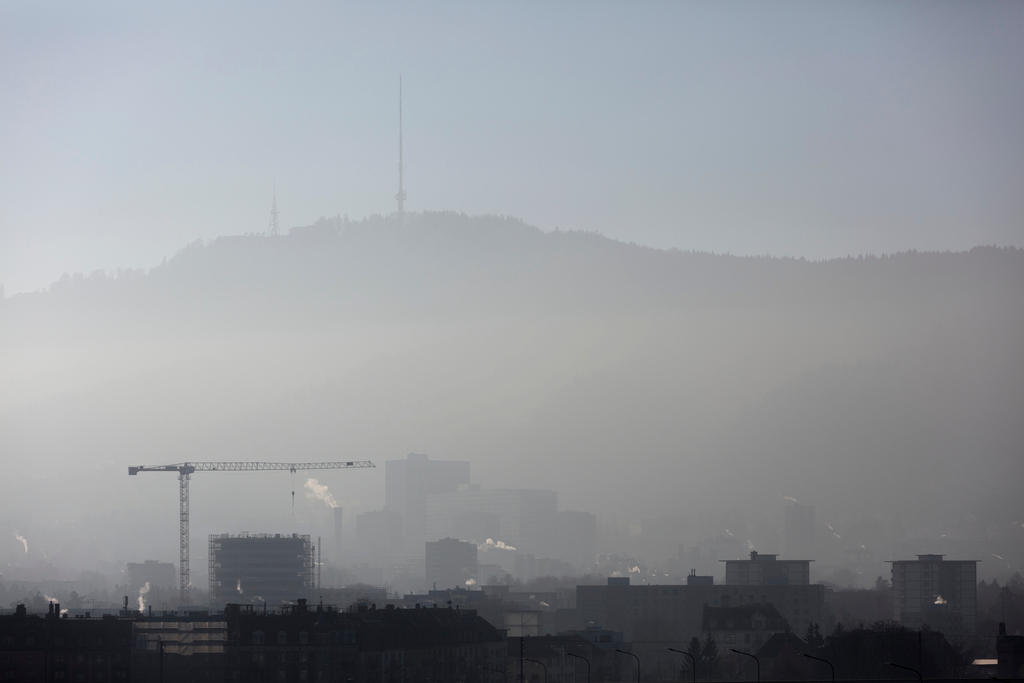
Pollution continues to kill, including in Switzerland

There are more than 4,000 premature deaths per year in Switzerland owing to air pollution, says a new report.
The statistics are part of a new survey by the European Environment AgencyExternal link, which puts the number of premature deaths in European countries at more than 400,000. The figures are for 2016 and are based on data collected in 2017 in more than 4,000 measuring stations across Europe.
In its data for SwitzerlandExternal link, the report says there were 3,700 premature deaths attributable to particulate matter (PM), 620 to nitrogen dioxide (NO2) and 240 to ozone (O3).
Premature deaths are considered to be those that occur before an expected age, normally standard life expectancy for a country and gender, the EEA explains.
It says that while Europe has made progress on reducing air pollution, it continues to harm human health and the environment, especially in cities. “We are making progress,” says EEA director Hans Bruyninckx of Belgium, but “it’s time to speed up changes in energy, food production and mobility”.
In Europe, the highest concentrations of fine particles in the air are to be found in northern Italy, Poland and the Balkans, according to the EEA. It nevertheless points out that the number of premature deaths caused by such particles has dropped by half a million compared with the 1990s.

More
Why current air pollution limits only tackle half the problem

In compliance with the JTI standards
More: SWI swissinfo.ch certified by the Journalism Trust Initiative





























You can find an overview of ongoing debates with our journalists here . Please join us!
If you want to start a conversation about a topic raised in this article or want to report factual errors, email us at english@swissinfo.ch.